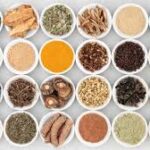Herbs and Mental Health in Africa: Promise & Pitfalls

Mental health challenges such as stress, anxiety, and depression are growing concerns across Africa. Limited access to psychiatric care, social stigma, and high treatment costs make it difficult for many people to receive the help they need. For centuries, however, Africans have turned to traditional herbal remedies to ease emotional distress and restore balance. While these herbs show great promise, their use is not without risks. This article explores the role of African herbs in mental health, highlighting both their potential benefits and pitfalls.
Common African Herbs Used for Mental Health
1. Kanna (Sceletium tortuosum)
Traditionally used in Southern Africa, kanna is known for its mood-enhancing effects. It helps reduce anxiety, tension, and depressive symptoms.
Risk: Overuse may cause headaches or dependence-like effects.
2. Gotu Kola
Used across Africa and Asia, gotu kola is valued for improving memory, reducing stress, and supporting brain function.
Risk: In high doses, it can lead to dizziness and stomach irritation.
3. African Basil (Scent Leaf / Ocimum gratissimum)
Known locally as efirin in Nigeria, this herb is used for relaxation and stress relief.
Risk: Excessive consumption may lower blood sugar too much.
4. Valerian Root
Although not native, valerian is grown in parts of Africa and used to manage insomnia and anxiety.
Risk: Can cause drowsiness and interact with sedatives.
5. St. John’s Wort
Increasingly popular in herbal markets, it is used to treat mild depression.
Risk: Dangerous interactions with antidepressants, contraceptives, and HIV medicines.
Benefits of Herbs for Mental Health
-
Stress Reduction – Herbs such as kanna and African basil help calm the nervous system.
-
Improved Sleep – Valerian and other herbs support natural sleep cycles.
-
Mood Enhancement – Certain herbs increase serotonin and dopamine activity, lifting mood naturally.
-
Accessible Care – Herbal remedies are often more affordable and culturally acceptable in African communities.
Risks and Challenges
While promising, herbal use for mental health carries significant risks:
-
Drug Interactions – Herbs like St. John’s Wort interfere with psychiatric medications.
-
Lack of Dosage Standards – Unregulated use can cause overdosing or underdosing.
-
Stigma & Delay in Care – Over-reliance on herbs may prevent people from seeking professional treatment.
-
Scientific Gaps – Limited clinical research makes it difficult to fully validate traditional claims.
Safe Use Recommendations
-
Consult a mental health professional before trying herbal remedies.
-
Use herbs as complementary care, not replacements for prescribed treatment.
-
Purchase from trusted sources to ensure purity and correct preparation.
-
Encourage research to bridge traditional medicine and modern psychiatry.
Conclusion
African herbs hold enormous potential in supporting mental health by easing stress, anxiety, and depression. They are affordable, accessible, and rooted in cultural traditions. However, without regulation, scientific validation, and professional guidance, their misuse can be harmful.
The future of mental health in Africa could benefit from integrating herbal medicine into modern healthcare—offering patients both cultural familiarity and scientific safety.
Written by Fawzi Rufai, Medically Reviewed by Sesan Kareem



